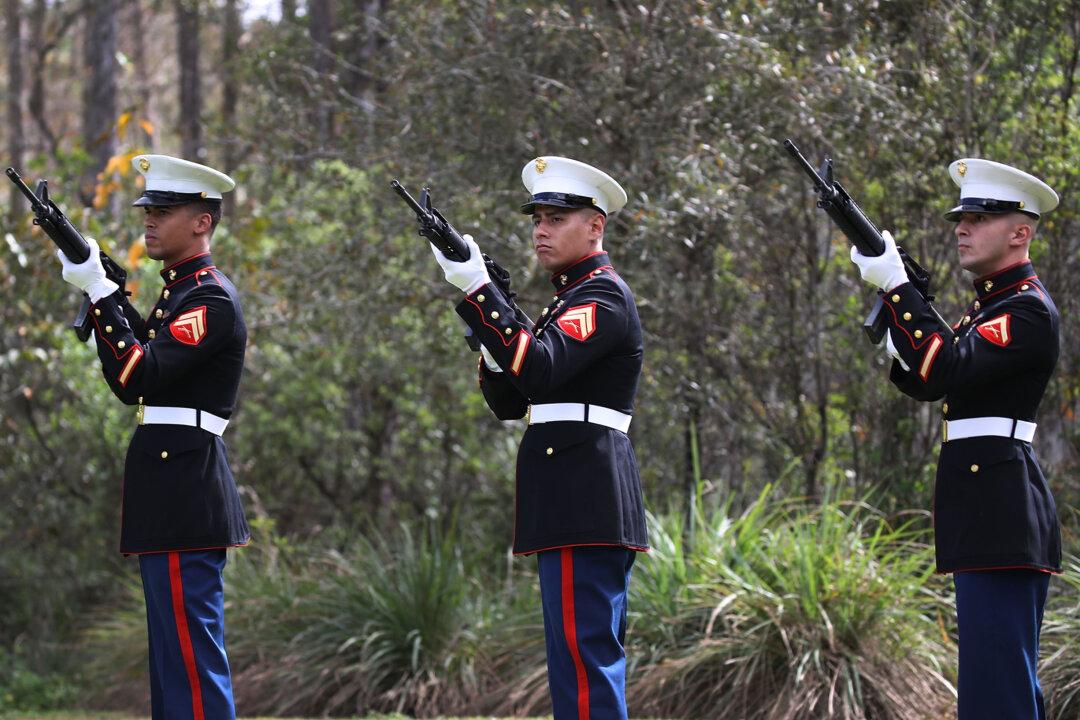The University of Virginia canceled a 21-gun salute scheduled to take place as part of the school’s Veterans Day ceremony, prompting a backlash.
The university’s provost office and Col. Michael Hough, commanding officer of the school’s Air Force ROTC detachment, made the decision to eliminate the salute for two reasons, University of Virginia President Jim Ryan said in a statement.





